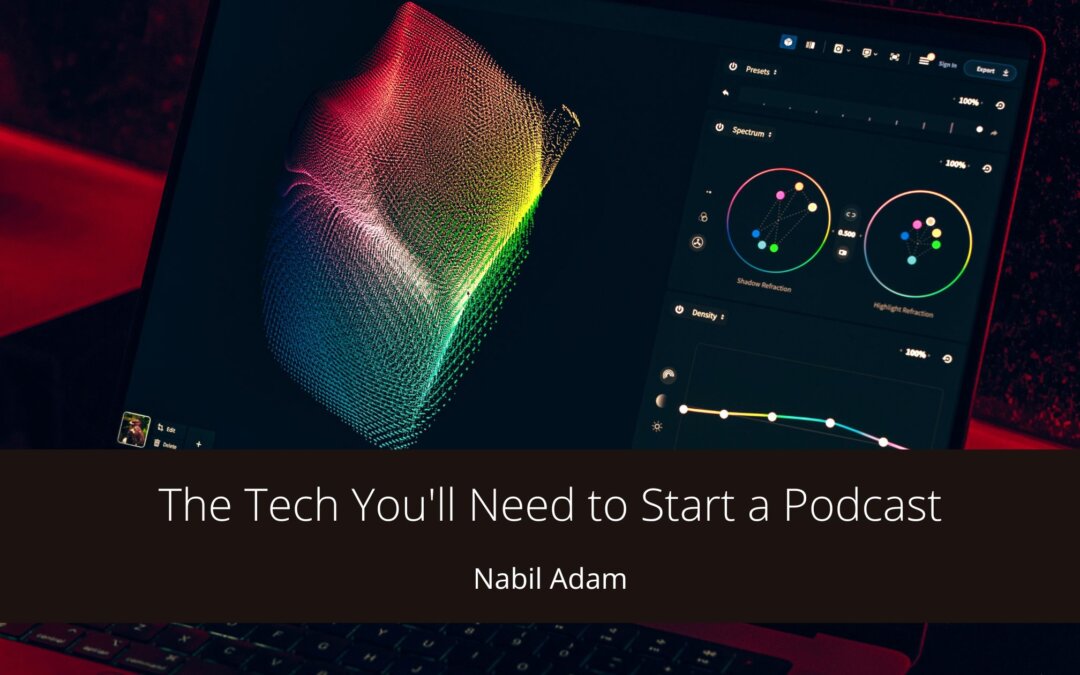Podcasting has emerged as a powerful platform for sharing ideas, telling stories, and engaging with audiences on a global scale. Starting a podcast can be exciting if you’re a seasoned content creator or a passionate individual eager to share your expertise. However, like any digital media, podcasting requires specific tech tools to produce high-quality content and effectively connect with your target audience.
Microphone
A high-quality microphone is the cornerstone of any successful podcast. Clear audio is crucial for engaging your listeners and ensuring an enjoyable experience. Consider factors like sound quality, connectivity, and compatibility with your recording setup when selecting a microphone.
Dynamic microphones are commonly used for podcasting because they reduce background noise and capture crisp, focused vocals. USB microphones are user-friendly as they plug directly into your computer, eliminating the need for external audio interfaces. For more advanced users, XLR microphones offer better audio quality and flexibility but require an audio interface to connect to your computer.
Headphones
Investing in a reliable pair of headphones is essential for monitoring audio while recording and editing your podcast episodes. Closed-back headphones are often preferred for podcasting because they isolate external noise, allowing you to concentrate on the content without distractions.
Look for headphones that provide accurate sound reproduction, comfortable fit for extended use, and durable construction to withstand regular wear and tear.
Audio Interface
Audio interfaces bridge your microphone and computer, converting analog signals into digital audio for recording. They come in various configurations, from single-channel interfaces suitable for solo podcasters to multi-channel interfaces for interviews and group discussions.
Choose an audio interface that matches your microphone and computer’s connectivity options, and ensure it offers low-latency monitoring to eliminate delays while recording.
Recording and Editing Software
To record and edit your podcast episodes, you’ll need reliable software. Fortunately, various options are available to suit different budgets and skill levels.
For beginners, free recording software like Audacity is a popular choice. It provides essential editing features and is relatively easy to navigate. Audacity is available for Windows, macOS, and Linux, making it accessible to many users.
If you prefer a more professional solution, consider subscription-based software like Adobe Audition or Hindenburg Journalist Pro. These tools offer advanced editing capabilities, multi-track support, and enhanced audio processing options, enabling you to create polished podcast episodes.
Pop Filter
A pop filter is a small but crucial accessory that helps reduce plosive sounds when recording vocals. Plosives occur when certain consonants, like “p” and “b,” produce bursts of air that can create distracting pops in your audio.
Placing a pop filter between the microphone and your mouth can minimize these unwanted noises, resulting in cleaner and more professional-sounding recordings.
Mic Stand or Boom Arm
To maintain consistent audio quality and avoid unnecessary noise, use a mic stand or a boom arm to position your microphone securely. This ensures the microphone remains stable and aligned with your mouth, preventing accidental bumps or vibrations during recording.
Mic stands are stationary and sit on your desk, while boom arms offer adjustable positioning, making them a preferred choice for many podcasters.
Starting a podcast is an exciting opportunity to share your passion and expertise with a global audience. Investing in the right tech tools can produce high-quality content that captivates and engages listeners. Remember to prioritize a high-quality microphone, headphones, and audio interface to ensure clear and professional sound. Utilize reliable recording and editing software to craft polished episodes, and consider adding accessories like pop filters and mic stands to enhance your audio quality further. With the right tech at your disposal, you’ll be well on your way to creating a successful and impactful podcasting journey.

